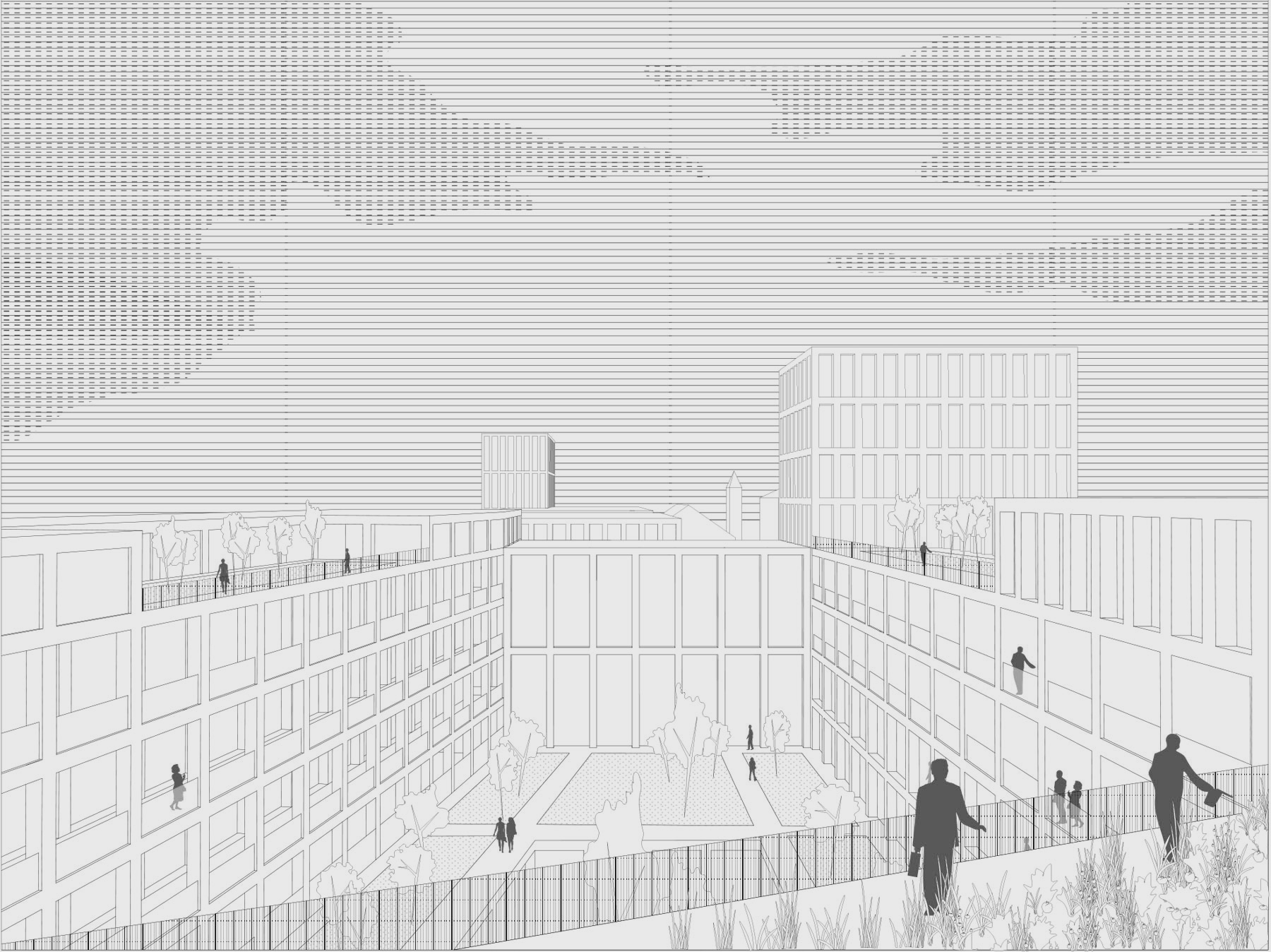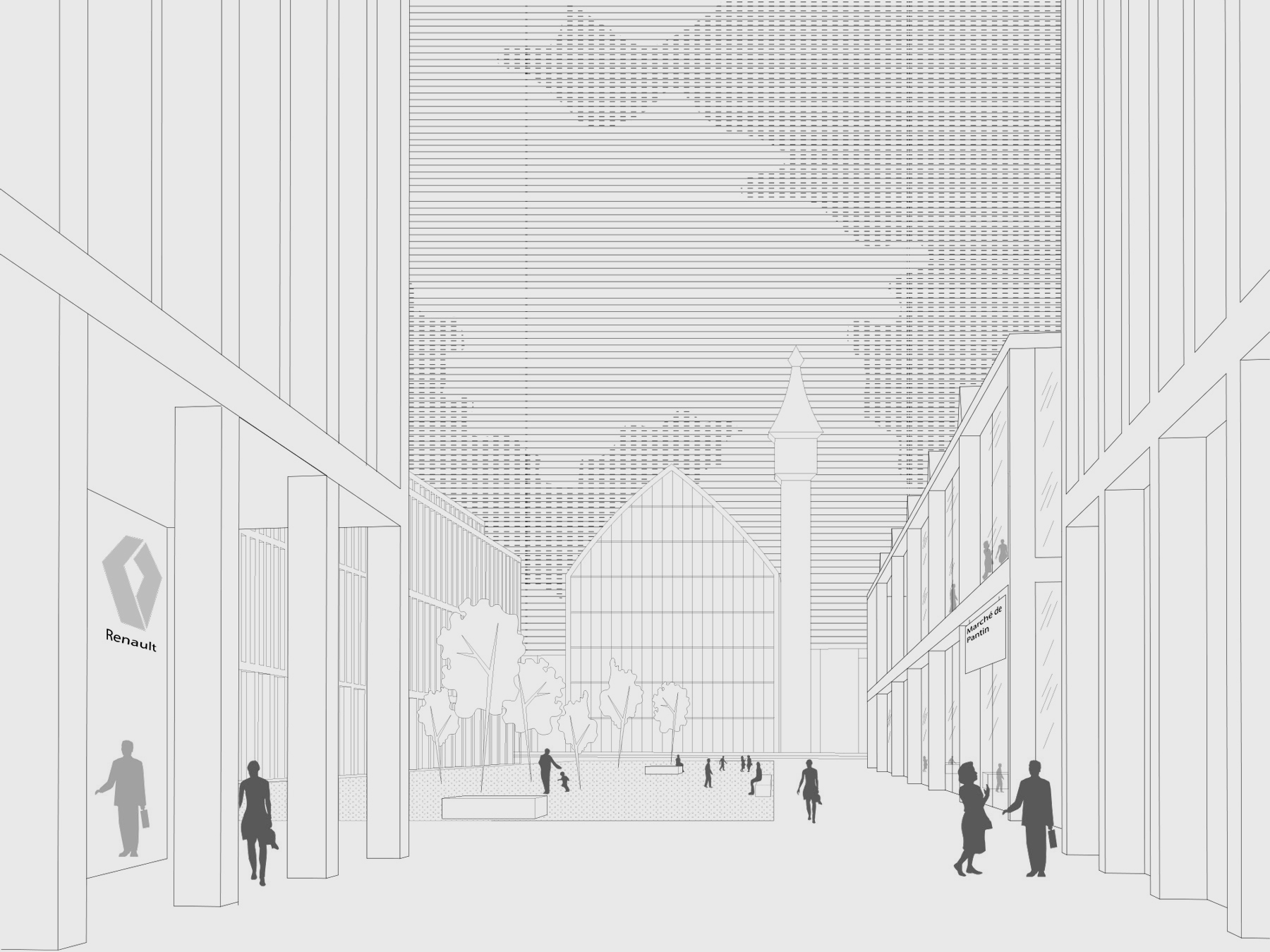


If on one hand, the major infrastructures such as highways, railways and the canal has projected Pantin into modernity, on the other, they constituted the major obstacle for improvement. That is, our masterplan investigates three main principles: a compact and fair density, porosity and a recognizable identity.
Compactness optimizes the use of land, allows activities to be regrouped around the housing blocks liberating land in order to create small gardens fighting with the grey of concrete which commonly predominates in suburban contexts. The Second principle is Porosity, the fundamental characteristic of the adaptable and sustainable city. It is a principle that only manifests itself in time; an invisible infrastructure that adapts to every change of the city and which collects all the voids that make up the urban fabric. The third principle is recognizability, or the search for identity. It derives from porosity, and it starts from the idea that the image of a city is related to its form and proportions.
In order to achieve those goals, our project establishes an urban alphabet which defines the criteria of the adaptable city and which provide the greatest flexibility and reversibility to the architectural spaces. The alphabet contains measures and pieces that cohabit each other and which guarantee an almost infinite number of possibilities to the development of the city.
Thus, the project develops as a succession of atmospheres, views, lights, and successive modifications, which allow individuals to feel unique and, at the same time, part of a whole. This is possible thanks to our vision that looks at Pantin as a vast system of interdependent units.